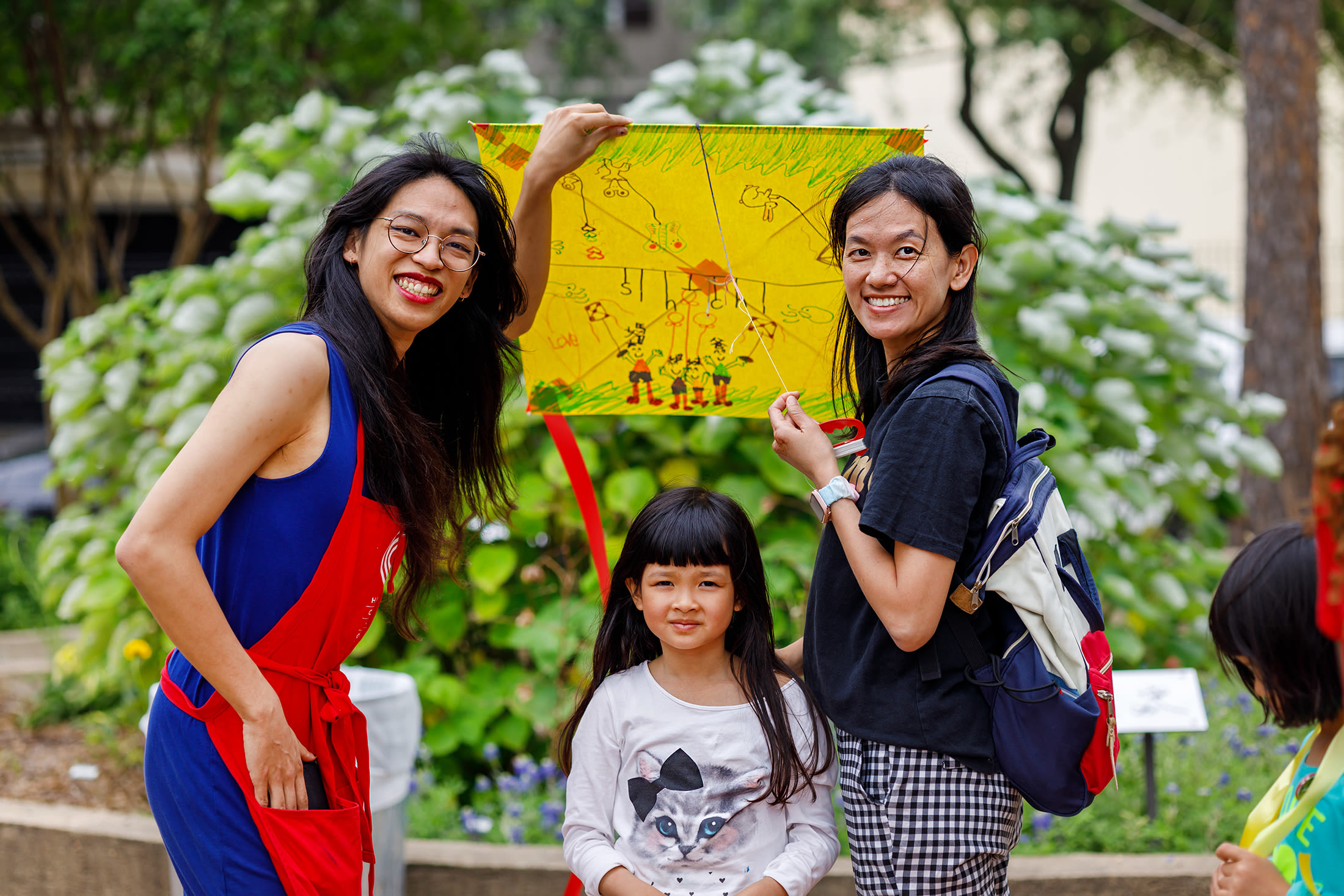Aguas da Amazonia Brings a Welcome Flood of Technical Ambition

Aperio, Music of the Americas debuted a new arrangement of Philip Glass's Aguas da Amazonia Saturday at the Hobby Center for the Performing Arts.
Image: Courtesy Ed Schipul
Philip Glass writes impossible music, forever pushing the limits of imagination and sheer logistics. Familiar repetitions blend with unfamiliar experiences in the grooves of those repetitions; the rock 'n' roll sentiment that drew David Bowie and Brian Eno to his side melds with allusions to the straight-laced Baroque composer Vivaldi. And some of his compositions, written with performance specifics that aren’t strictly reproducible, leave much of his music in the realm of mystery.
Saturday, in its season opener, Aperio, Music of the Americas seized Glass’s many-sided mystique with three works. Conducted by the magnetic Marlon Chen, the concert opened with the serene Etude No. 2 (a re-working by Clara Alonso Tafé), followed by fiendish Violin Concerto No. 2, taken on by soloist Chloé Trevor, and closed with a world premiere arrangement by Charles Coleman of Aguas da Amazonia, a suite for chamber orchestra.
I never thought I’d hear Aguas da Amazonia live in any concert hall. The 10-movement work takes inspiration from the Amazon River, beginning with “Tiquié River” and unspooling madly into “Metamorphosis.” Written originally as a dance score for the radiant Brazilian ballet company Grupo Corpo, Aguas da Amazonia is a collaboration between Glass and Uakti, a Brazilian new music ensemble who play on one-of-a-kind instruments that make sounds you’ve never heard, like the Pans (percussion instruments made out of PVC) and the Flor (a instrument made from a wooden spoon and two E flat steel guitar strings held with nails).
You can’t just pick this piece up. And after Glass and Uakti recorded it in 1993, almost no one did.
But decades later, in 2016, the MDR Leipzig Radio Symphony Orchestra played the Aguas European premiere in an orchestral arrangement by Charles Coleman—an arrangement that Chen, who was working as MDR’s assistant conductor, helped with. For last night’s world premiere, Chen worked with Coleman to adapt the orchestration yet again for the smaller performing forces of Aperio’s orchestra.
If the 1993 recording of Aguas da Amazonia has been on your Glass’s Greatest Hits playlist for years, you’d probably feel like this isn’t quite the same piece, and yet, it maintains the core sensations. Right away, there are violins bowing the rising and falling scales rather than the harp-like sharp plucking that pop out against that opening organ hum. And later, the brass section tries to negotiate the Uakti’s version of pan flutes.
Chen—smiling, leaping, waving, stomping—ushered in this new arrangement with aplomb. The two percussionists, Craig Hauschildt and Brandon Bell, impressively held their own, following the river pulse with mallet verve. The string sections, especially the violists who were often tasked with holding a base moto perpetuo, struck just the right glassy texture. Sean Krissman, on clarinet, and Season Summers on oboe, popped in those two-note lyrics like the best of forest birds. But the brass, charged with the admittedly impossible job of imitating the more elusive Uakti instruments, struggled with the light dynamics and sliding tonal drops, often at the cost of intonation.
Even so, by the cascading last chord—something that bursts and hangs unresolved—the work settled into a glorious calm not unlike where the concert began with Etude No. 2, a piece that sounds like a welcoming hand repeating its jovial gesture again and again until you forget you were ever a guest to its sound.
The Violin Concerto No. 2, composed with Vivaldi’s Four Seasons in mind, is undoubtedly a joy to hear but a nightmare to play, and Trevor did not make it seem otherwise. Strolling in from stage left after the orchestral prologue, she performed with grit and fire but fell short of finesse. A few double stops and octaves missed the mark, but, after pages of slightly varying finger-defying scales and arpeggios, perhaps it's par for the course.
Aperio’s ambitious season opener was also one of the first concerts downtown since Harvey devastated Houston, leaving many arts organizations reeling. The Wortham Theater Center, just a few blocks away, remains surrounded by flood recovery machinery. Before the concert started, Aperio announced that with this concert they wanted to show that art was alive and was part of the recovery efforts—Houston strong, staying together. There’s hardly a better program than what they put forward—a re-animation of lost river, the glowing reassurance that life keeps moving no matter what.




